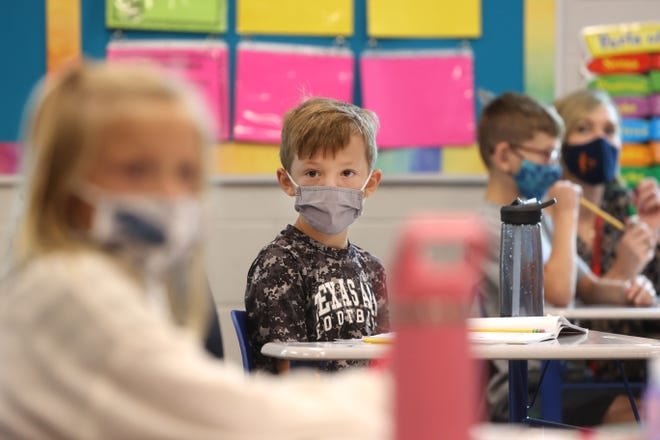Citing “rare” spread of the coronavirus in schools, Indiana health officials will no longer require students and teachers to quarantine if they are exposed to COVID-19 in a classroom where everyone is masked and remaining at least 3 feet apart.
For students and teachers still required to quarantine after close contact, schools can shorten those periods under relaxed quarantine guidelines from the Centers for Disease Control and Prevention. Instead of a 14-day quarantine, students and teachers can return — with masks — after 10 days if they never develop symptoms or after seven to eight days if they test negative.
“We hope that these steps will help decrease the disruption that COVID-19 continues to cause in our educational system,” Indiana State Health Commissioner Dr. Kristina Box said during a Wednesday press conference.
State officials also held fast to their decision not to prioritize teachers for vaccination while dealing with a limited supply of doses. So far, Indiana has opened vaccination to people 65 and older, aiming to first inoculate those at highest risk of hospitalization or death due to COVID-19.
Next in line will be people who may be more vulnerable because of medical conditions, state officials said, adding that Indiana doesn’t have enough vaccines for its 2 million essential workers, including teachers. While many other states are already vaccinating teachers, some Indiana educators have resorted to finding local waitlists to receive leftover doses.
“Our critical infrastructure, which our teachers would be included in — that has always been in Phase 2,” Box said, noting that Indiana is still in Phase 1B. “When we had to first put in a preliminary plan back in October, we talked a lot and walked through many of these things, knowing that vaccines would be scarce.”
The loosening of quarantine requirements, effective Monday, comes as state officials say schools are reporting little transmission in classrooms. Saying the state hopes to reduce the burden of quarantines, Box cited an unnamed southern Indiana district where nearly 98% of more than 1,900 students quarantined never became ill, and three-fourths of staff quarantines resulted from exposures outside of school.
Indiana had previously defined a “close contact” in school as someone within 6 feet of an infected individual for 15 minutes or more. But Box said most schools arrange classrooms to accommodate only a distance of 3 to 4 feet in classrooms.
Quarantining and contact tracing will still be required in cases of COVID-19 exposure in classrooms where masks are not being worn all the time and in school settings outside the classroom, such as during lunch or sports.
State officials also announced Wednesday that they will distribute 1.6 million KN95 masks, more hand sanitizer, and rapid tests to schools. They hope the antigen tests, which use a nasal swab, will help schools immediately identify positive cases.
Indiana has dropped down to a seven-day test positivity rate of 7.7%. This school year, Indiana schools have reported more than 36,000 cases of COVID-19 among students, teachers, and staff.






